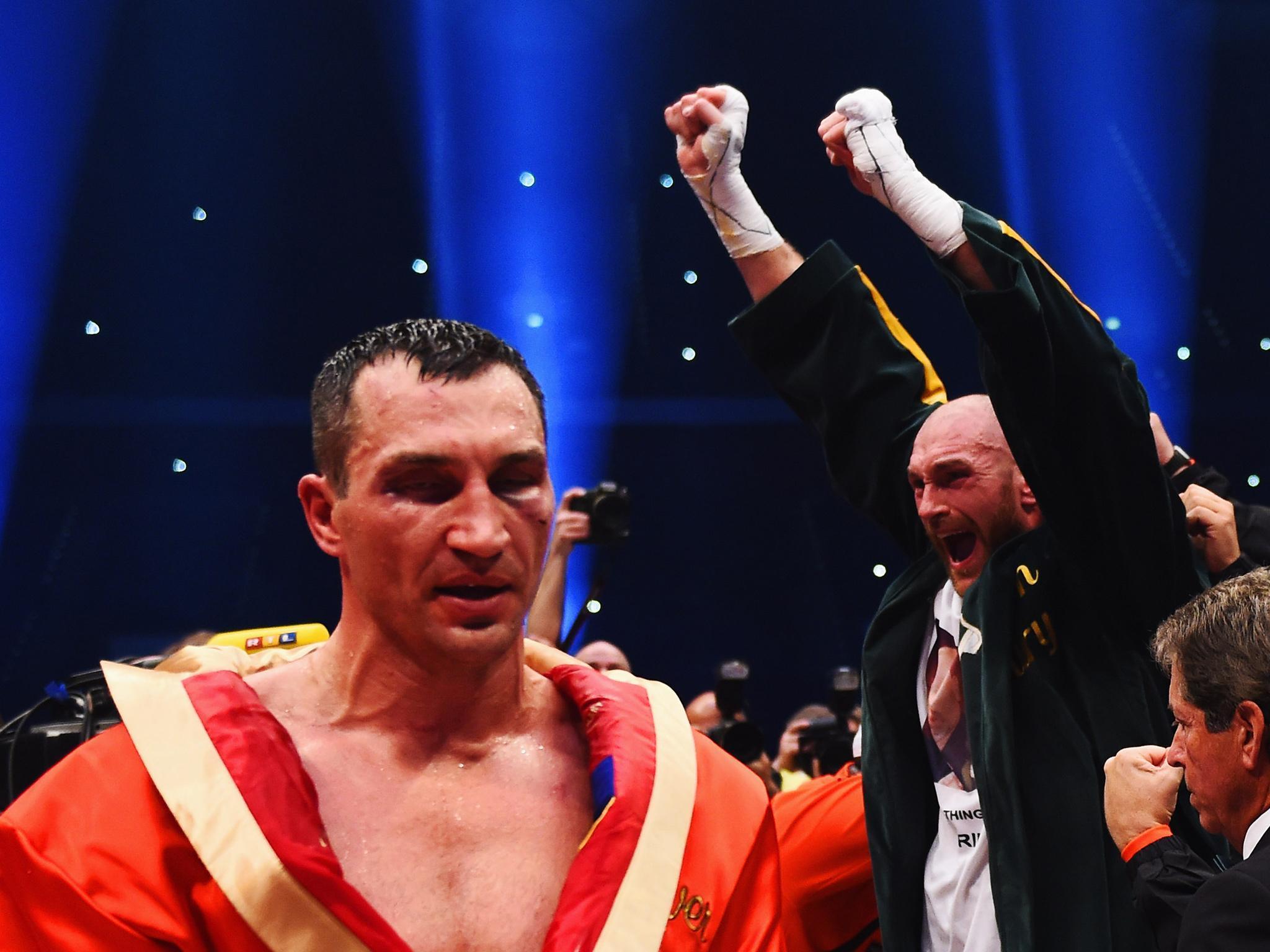Russian Maxim's homophobic feature was awful. But the BBC celebrating Tyson Fury's personality is worse
Maxim said they "forgave" some gay men their sexualities. Meanwhile, the BBC is apparently happy to forgive Fury comparing homosexuality to paedophilia


Your support helps us to tell the story
From reproductive rights to climate change to Big Tech, The Independent is on the ground when the story is developing. Whether it's investigating the financials of Elon Musk's pro-Trump PAC or producing our latest documentary, 'The A Word', which shines a light on the American women fighting for reproductive rights, we know how important it is to parse out the facts from the messaging.
At such a critical moment in US history, we need reporters on the ground. Your donation allows us to keep sending journalists to speak to both sides of the story.
The Independent is trusted by Americans across the entire political spectrum. And unlike many other quality news outlets, we choose not to lock Americans out of our reporting and analysis with paywalls. We believe quality journalism should be available to everyone, paid for by those who can afford it.
Your support makes all the difference.Earlier this week, the Russian edition of men’s magazine Maxim published a list of famous gay actors, authors and musicians who they have “forgiven” for their sexual orientation. The article, entitled “Gays We Respect,” reads, “We, men, do not consider men who love men to be men. This is the rule.”
Continuing, the article reads: “But there are exceptions. There are gays who have earned our respect and the right to remain real men in our eyes.” Neil Patrick Harris, Stephen Fry and Ian McKellen are among those who are deemed deserving of “respect”, although the former was almost excluded for saying in an interview that he is “happily gay.” Fry was described as “the living embodiment of the idea that one can be openly gay and a sensible person at the same time,” while Freddie Mercury was hailed as a “rock icon, an exception to all rules. His creativity he brought us so much joy, that we are willing to forgive him anything.” I’m sure he would be thrilled.
While the worldwide media is busy reacting to this news, Russian Maxim has attempted to call the article a “joke”, claiming that this was clearly stated in the beginning of the piece. Still, nowhere within the writing does it give any indication that the piece is supposed to be funny.
As a gay man, there is something about this fanfare that irritates me. Yes, this article is both laughable and obscene, but it’s not exactly unfamiliar to those of us who live in the UK.
Perhaps we should look a little closer to home before we start throwing our hands up in horror at this article. Heavyweight boxer Tyson Fury was nominated for the BBC Sports Personality of the Year Award 2015 this week despite publically comparing homosexuality to paedophilia in an interview with the Mail On Sunday. Fury has a history of making homophobic comments, including calling his competitors “fairies” and “gay lovers.”
A petition surrounding his nomination is currently gathering pace online, with a statement from the BBC explaining that Fury was nominated for his sporting achievements alone. There’s just one problem; it’s the sports personality of the year award. How can the BBC celebrate Fury’s personality when he has repeatedly refused to apologise for saying such offensive things? Is this really the sort of person that deserves such a prestigious award?
Gay men are constantly told that they have committed a gendered sin, and therefore should expect to be reviled or “forgiven” by the kinder people. On the flipside, men like Fury who embody heroic “real” masculinity will always be forgiven, no matter what they say and refuse to apologise for. This will happen as long as homosexuality is associated with femininity, or indeed as long as femininity is considered “weak”.
This is so embedded within our culture that these attitudes are even expressed within the gay community. Anyone who has ever used a gay dating app will know how ‘straight acting’ gay men are given an elevated and sought after status. US Maxim were quick to distance themselves from their Russian counterparts, but there’s no denying that they promote a narrow and ostracising version of masculinity.
“Don’t let your sexuality define you” is a phrase that I’m sure most of us are absolutely sick to death of hearing, despite the fact that in my experience heterosexual people have been the first to ‘define’ me in this way. What this basically means is “I know you’re gay, but you don’t have to be into all those gay things.” This creates a culture where gay people are routinely made to feel lucky or grateful for being accepted, when in fact this should be the norm and not the exception. Just as gay celebrities have to be more talented, your average gay person has to be funnier, smarter and more outgoing to compensate for the fact that they sleep with men.
So although Russian Maxim has been rightfully condemned, these attitudes still exist in the UK - it’s just that they are rarely stated so explicitly. Unfortunately, the list of people like Fury who are routinely “forgiven” for having offensive views is endless, and the undercurrents of prejudice run strong. Russian Maxim has said their piece, and we know how they feel – but you know what’s even more frustrating? When you know that many people in the UK feel that way anyway, but are too polite to say it.
Join our commenting forum
Join thought-provoking conversations, follow other Independent readers and see their replies
Comments